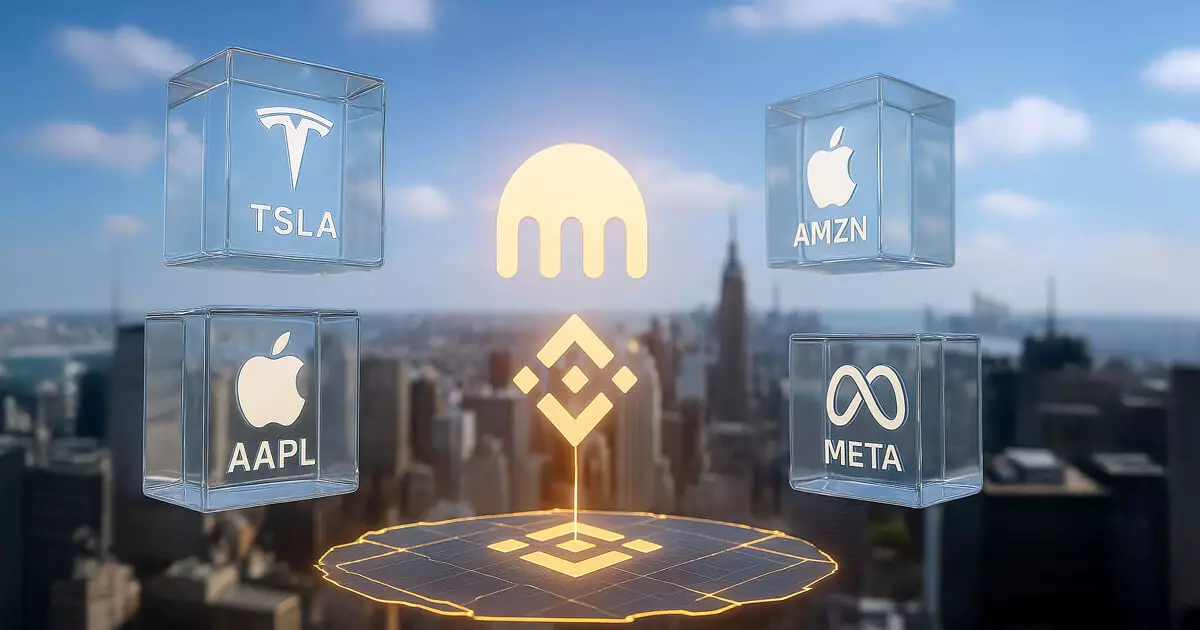The recent announcement by Kraken to extend its xStocks product onto Binance-backed BNB Chain exemplifies the industry’s endless quest to redefine traditional finance through blockchain. While proponents tout this move as a leap toward creating a “multichain, frictionless” capital market, a deeper scrutiny reveals it might be more a spectacle than a substantive transformation. The promise that tokenized equities—such as AAPLx and TSLAx—will democratize access and offer seamless, instant transfers across borders is alluring, but missing are the fundamental questions about liquidity, regulation, and stability that underpin real market confidence. This expansion on BNB Chain, too, seems less like a genuine overhaul and more like a calculated step to stay relevant in an increasingly competitive landscape driven by hype and fear of obsolescence.
Tokenization: Boon or Bubble?
The notion that tokenized assets will eventually reach the staggering valuation of $30 trillion by 2030 is a bold forecast, but it is also riddled with overoptimism and speculative fervor. Industry giants like Robinhood and BlackRock are pushing into this space, which signals recognition that digital representation of equities could be lucrative—if it ever truly matures. Yet, for all the excitement, tokenization remains fraught with challenges, from regulatory uncertainties to liquidity deficits. As galaxies of untested swap protocols and DeFi platforms emerge, the veneer of innovation conceals risks comparable to the Wild West days of early finance. This unregulated fervor could benefit early adopters or tech-savvy traders, but for mainstream investors, it risks becoming a veritable minefield of losses and confusion.
The Disruption of Legacy Markets
Traditional exchanges like the NYSE, built on the bedrock of centralized control, face an ominous future as blockchain-based trading platforms expand their reach. The supposed “always-on” nature of tokenized trading threatens to dismantle the well-oiled machinery of legacy markets, which rely heavily on structured hours and central liquidity pools. While modern platforms tout real-time settlement and cross-chain fungibility as advantages, these innovations threaten to undermine the traditional model’s stability, reputation, and revenue streams. The shift towards decentralized assets and 24/7 trading isn’t merely technological evolution—it’s an existential challenge that could reconfigure the landscape of finance itself, often at the expense of tried-and-true safeguards designed to protect investors and stabilize markets.
The Illusion of a Level Playing Field
Kraken’s push into BNB Chain underscores a broader misconception that tokenized securities automatically equalize opportunities for investors worldwide. But in reality, this expanded accessibility risks exacerbating disparities rather than diminishing them. The intricate web of decentralized finance facilitates rapid, automated transactions, but it also magnifies volatility and systemic risks, often greener to the “casino economy” mentality that many critics have long warned against. The fantasy that technology will seamlessly bridge jurisdictions and democratize markets is just that—a fantasy—unless regulatory frameworks evolve sufficiently to oversee this new frontier. Until then, the promise of a borderless, democratized equilibrium remains a reassuring myth rather than an imminent reality.

